Every little girl spends their childhood dreaming of adventure. Imagining the one magical moment when their reality transforms into something extraordinary.
For a very long time, I wanted to be the Doctor. The Oncoming Storm in her police box, defender of time and space. Taking chances, making friends, rolling the dice with nothing but fate as her guide. But there was one big reason why I couldn’t be the Doctor. Why no girl could be the Doctor.
For the last 55 years, the Doctor has canonically been a white male. All 13 incarnations (counting the War Doctor) fit the bill, although their ages run the gamut. Subtly powerful, always charismatic, with a dash of charm, he’s the eternal White Knight of the universe. Riding in, saving the day, and often… getting the girl.
Women in DOCTOR WHO are treated more like arm candy, an accessory to the protagonist. A whopping 62% of the Doctor’s travelling “companions” have been female, pretty faces relegated to supporting roles, existing only to marvel at the Doctor’s brilliance. The series has given fans some really amazing, memorable women—Rose Tyler, Donna Noble, Sarah Jane Smith, Ace, etc—but they’re females who wouldn’t have realized their own strength if the Doctor hadn’t come into their lives.
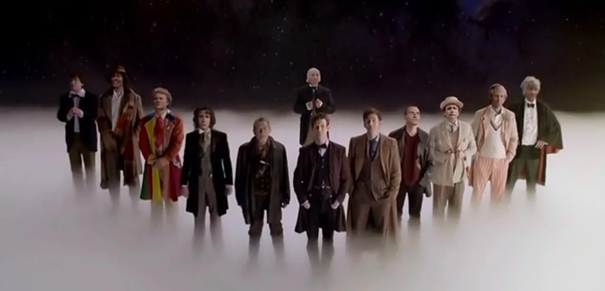
WHO said only white men can save the universe?
Fortunately, DOCTOR WHO has been quietly progressive for quite some time now, thanks to former showrunners Russell T. Davies and Steven Moffat. Together, they introduced new monsters, LGBT companions, and expertly wove relevant, fun stories. Their vision for New Who included women who were on equal footing with the Doctor: equally sassy, smart, and capable. But they didn’t stop there. In 2014, Moffat subverted canon and reintroduced one of the Doctor’s most famous male antagonists as a female.
When The Master became Missy, the shackles broke off. A whole universe of possibility opened up, one that included the a future with a female Doctor.
Jodie Whittaker’s announcement as the Thirteenth Doctor was inevitable, expected, and highly-anticipated. Female Whovians rejoiced. Change is something DOCTOR WHO has historically handled very well. It’s a show built upon the impermanence of the universe and the transient nature of life itself, after all. So the bar was set high and all eyes turned to Britain, as the world waited with bated breath for the female Doctor’s first moments.
The Doctor in the TARDIS. Next stop, everywhere. Laugh hard. Run fast. Be kind.
These words are the basic hallmarks of the show, and yet, Chris Chibnall’s inaugural series spectacularly fails to deliver on them. Fun, wonder, and intrigue be damned.
All of time and space… where do you want to start? Well, I certainly wouldn’t start here.
Series 11 certainly looks like DOCTOR WHO, but it’s mostly a false front. A husk, painted to look familiar, but missing its soul. A show that has largely veered off course, directionless and adrift in a confusing, obfuscated void, as its titular character struggles to come to terms with her own identity.
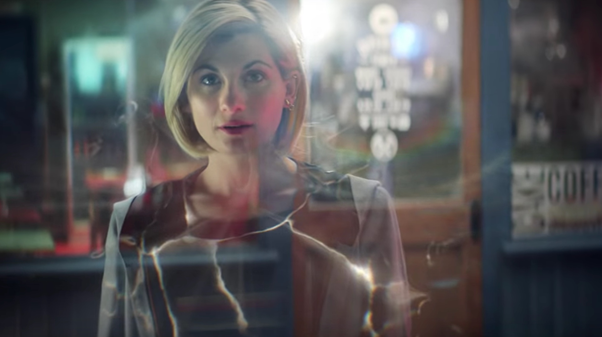
Doctor, WHO are you?
It’s difficult to pinpoint exactly where Thirteen went sideways. By all accounts, Series 11 should have been a success. Showrunner Chris Chibnall is a decorated writer and producer, and has managed several wildly popular series during his career. To name a few, LIFE ON MARS, BROADCHURCH, and TORCHWOOD, a DOCTOR WHO spin-off. Additionally, having worked closely with both Russell T. Davies and Steven Moffat during both of their tenures, Chibnall looked like the ideal successor on paper.
And yet, despite all his accolades, Chibnall’s first season at the helm was lackluster at best. We’re not left with a strong impression of who his Doctor is, the stories lack an overarching plot, and there’s very little sci-fi intrigue.
“Right now, I’m a stranger to myself. There’s echoes of who I was, and a sort of call towards who I am… I’ll be fine in the end, hopefully,” the Doctor explains, during “The Woman Who Fell To Earth.” Ironically enough, Chibnall seems to be confirming that he doesn’t know what he’s doing. That he hasn’t outlined motivations for his Doctor, or even a backbone. And it’s this haziness that waters down Thirteen’s impact.
Every iteration of the Doctor should be somewhat nebulous in the first couple episodes, but by the end of a season arc, their character is much more defined and established. Doctors Nine, Ten, Eleven, and Twelve were all able to carve out their personalities and distinctions as they were sequentially confronted with villains or taxing, morally ambiguous moments. By the end of each of their first seasons, you always knew where they stood, and a contributing factor was how each version of the character approached a common situation.
Take the Daleks, for example. Nine’s first instinct is to kill a Dalek, a carry-over from his previous incarnation as John Hurt’s War Doctor. Ten, having learned from his companion Rose, showed a wary compassion towards them. Eleven, after inheriting Ten’s rage, was explosively violent towards them. And Twelve, with his world-weary bitterness, approached everything with fatigued irritation. Each Doctor’s qualities are informed by previous versions—and they’re also chances for the showrunners and the actors to give the character their unique spin.
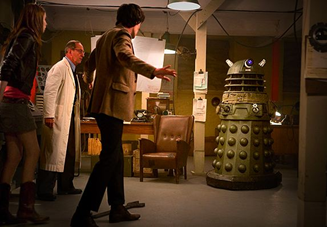
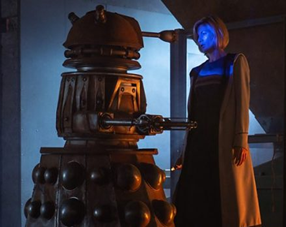
Thirteen doesn’t face the Daleks until the post-season New Year’s special, “Resolution.”
But Thirteen doesn’t really get these moments. Opportunities for confrontation are offered to her, but there’s always a moment of hesitation. Thirteen doesn’t take charge, and never really meets provocations head on. Instead, she hides behind shields and behind her gender, acting on impulse with situationally based morality. Is it a symptom of cowardice, or more simply, lacking character development?
Thirteen is many things—intelligent, fiery, socially awkward—but she lacks the spunky energy and lust for life that ran in her predecessors’ blood. The Doctor has always been a compassionate, friendly, and empathetic spirit. Likeable, in a totally bonkers way. But Thirteen doesn’t seem to truly connect with others, not in the same way Matt Smith and David Tennant’s Doctors did.
Nothing appears to drive her and motivate her. Where male Doctors were often called to action by duty, guilt, injustice, or simply, wanderlust, Thirteen just sort of… meanders. She pinballs from planet to planet, but the adventures are hollow because she’s not challenged or impelled by what she experiences. Her reason for existence is left out of her development, and it shows in every single minute she’s on screen.
There are callbacks to previous series and Doctors, a reminiscence of bygone halcyon days. But there’s nothing familiar about it. The worlds, the monsters, the companions… they’re all foreign. Which is intentional, on Chibnall’s part, but it leaves us feeling stranded in a quite alien way. Like looking into a mirror, and seeing someone else’s face. It’s disconcerting.
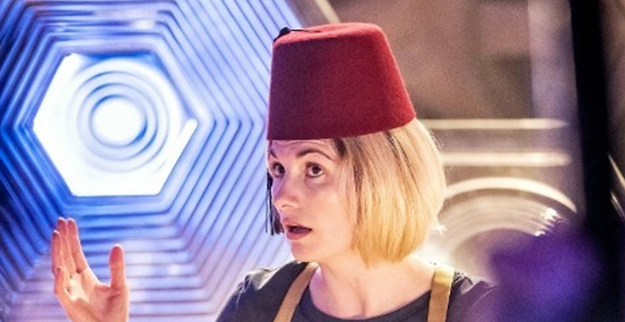
The fan-favorite fez just reminds us that we’re not watching Eleven
Although the Doctor has always been an alien, they’ve historically embodied and represented the best of humanity. And yet, for the first time in a long while, the Doctor actually seems inhuman. And this is no fault of Jodie Whittaker’s. Whittaker, in my opinion, does an excellent job with the material she’s been given. She brings as much energy and enthusiasm to her role as any male actor who came before. There’s just nothing she can do about bad writing.
Chibnall cans his characters, forsaking the very soul of the series in favor of an overt, politically correct agenda. Themes of of social strife take center stage, as each episode condenses easily into relevant, digestible bullet points of conflict. Familiar malefactors are abandoned, instead placing the lens on civil rights, gender discrimination, corporate corruption, and automation in the workplace.
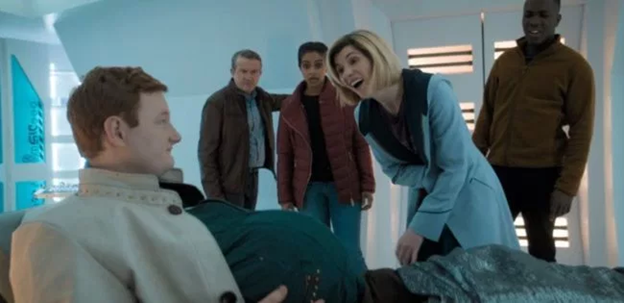
Ratings nose-dived when “The Tsuranga Conundrum” featured male pregnancy
Not to dismiss these important subjects, which can and should be explored within the realm of DOCTOR WHO, but they are sombre worldly reflections. An exacerbated reminder that our own reality isn’t perfect—and it’s depressing. Previous showrunners have handled similarly tough themes, but managed to balance them with wit, the yin to the emotionally charged yang. They never forgot that wish-fulfillment and magic was key, and that shone through, even when death and darkness swirled beneath.
But the Doctor isn’t the only character who’s a ghost of her former selves. What about her companions, or her so-called “fam.” Cue eye-roll. three ramshackle Sheffieldians now accompany the Doctor in the TARDIS. Human, but definitely not real people. Like cardboard cutouts, they populate the background as props, little more than one-dimensional ornaments on a kaleidoscopic adventure. They’re generic, distilled down to politically correct checkboxes on a diversity scoresheet.
You’ve got your black companion (Tosin Cole) with a minor handicap, a South Asian companion (Mandip Gil) who could pass as Middle Eastern, and an old white man (Bradley Walsh) for nostalgia’s sake. Initially unwilling passengers, they’re literally dragged into space by accident, and then held hostage as the Doctor faffs about the universe. And with each episode, it becomes glaringly, painfully obvious that they’re little more than ragdolls, carelessly tossed through scenes with unpleasant, forced smiles. While I admire the ambition behind bringing three aboard the TARDIS, Chibnall really should have just focused on creating one good companion.
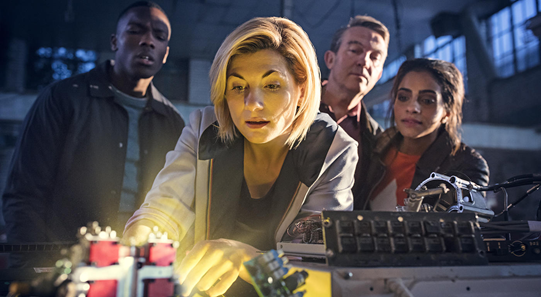
Black companion? Check. South Asian companion? Check. Can’t forget the old white guy too. Double check.
Part of what made New Who successful was its humor and heart. It had an inherent silliness, a whimsy that appealed to children and adults alike. Sure, the CGI aliens sometimes looked ridiculous, but that was part of the fun!
I wanted to love Thirteen. Under another showrunner, maybe I would have. But she’s missing that breathless wonder and dark eyes full of starlight. She’s missing The Doctor’s soul in her smile and fiery determination. And she’s missing her honest, pure admiration of the universe.
What this series boils down to is this… Can’t we have something old, something new, something borrowed AND something blue? Can’t we have something inventive, that still embraces its history and tropes? Familiar yet brilliant?
We’ve gotten some great moments out of Series 11. “Rosa” was a triumph, a story that would have been difficult to tell with any other incarnation. “Arachnids in the UK” managed decent CGI and felt more like classic Who. And “It Takes You Away” was really compelling sci-fi. But DOCTOR WHO fans need more than moments. I need more than moments. I need a Doctor who can take my breath away, inspire adventure, and reignite the travel spark.
Even though Series 11 was far from perfect, I still have hope for the future of the series. Impossible, maybe foolish hope. The New Years special, “Resolution,” was a step in the right direction, and was right to revive the Daleks. But there is a long road ahead.
I choose to believe in the Doctor, and in the messy beauty that’s smattered across the stars. The TARDIS will find its way again, I’m sure of it. And, like the Doctor says, “Keep your faith. Travel hopefully. The universe will surprise you. Constantly.”
See you in 2020.


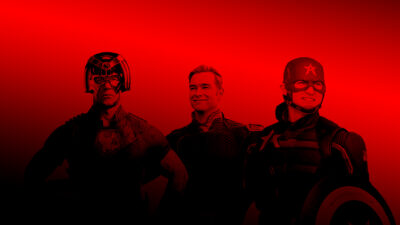

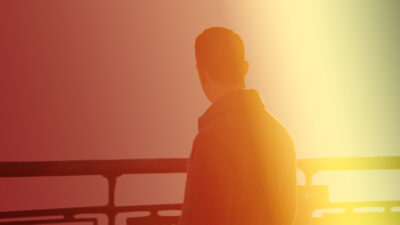
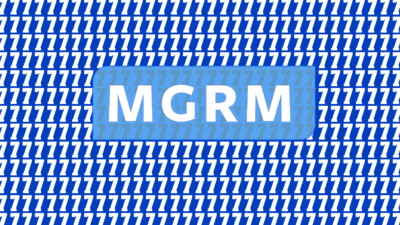
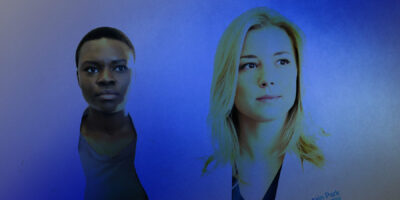
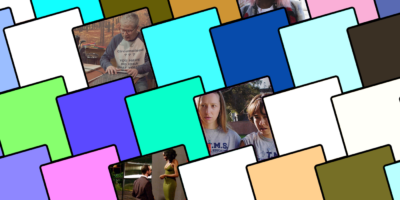
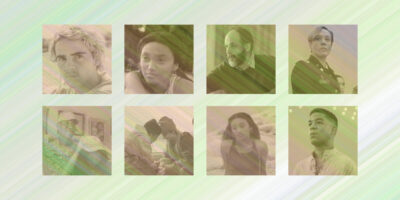
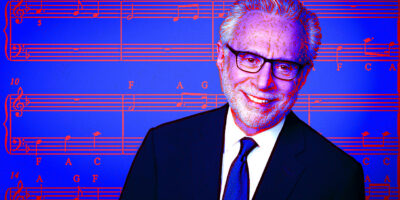
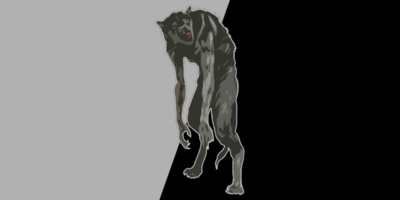
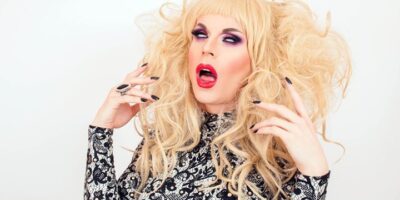
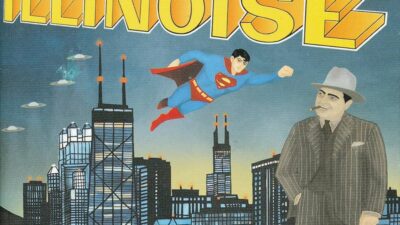
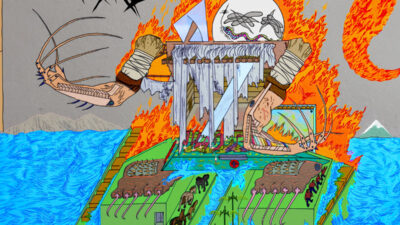
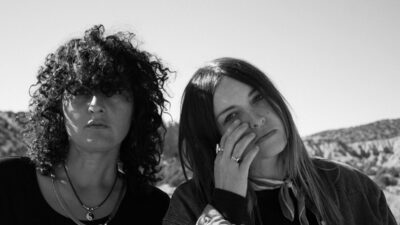

Comments